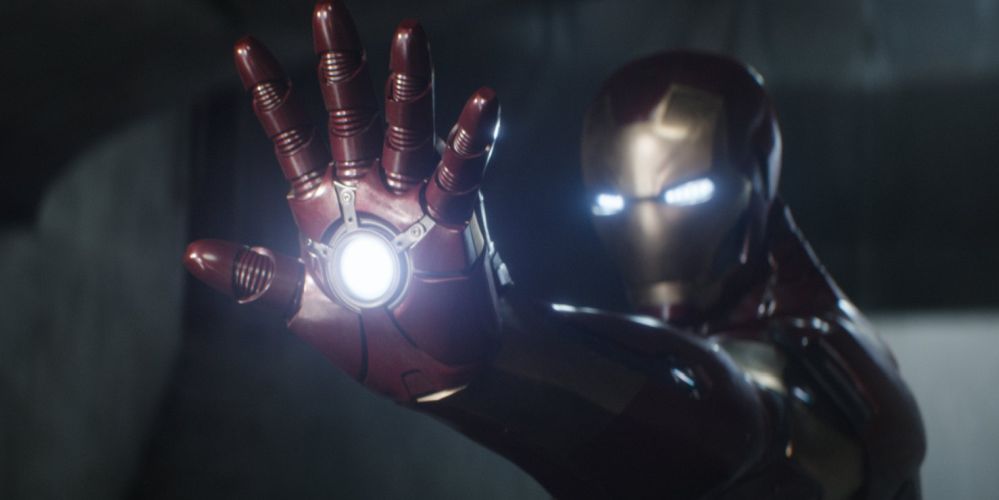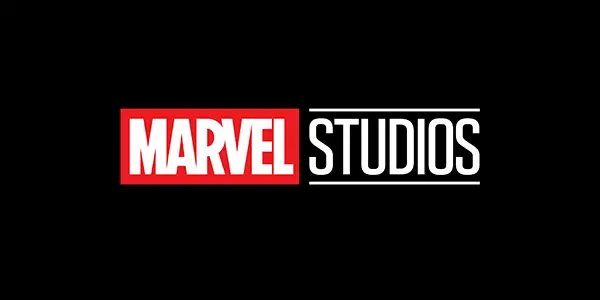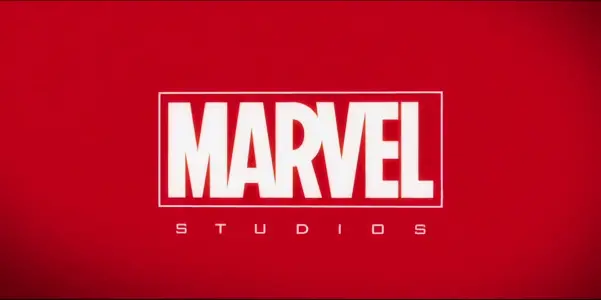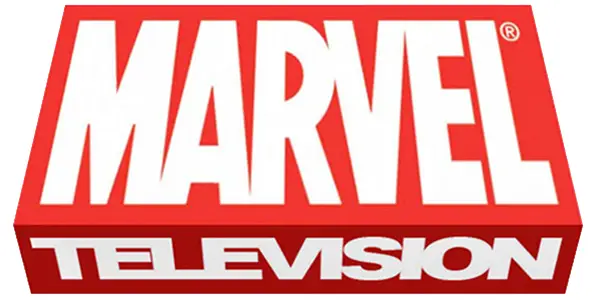It’s All Connected: The Consequences Of Marvel Studios’ Rebranding

Joseph is an Austro-American media and communications student currently living…
At this year’s San Diego Comic Con, Marvel Studios has unveiled various information regarding upcoming projects, ranging from a first look at Guardians of the Galaxy Vol. 2 to the casting of the lead of Captain Marvel.
Their last project for 2016, Doctor Strange, was given a lot of attention throughout their panel. Most notably, however, starting with this film, the company will start using a brand new logo. It is quite appropriate that they also updated their fanfare to be published alongside some of their most ambitious projects.
However, Marvel Studios’ rebranding may be more than just a simple new coat of paint for the company, as there are strong implications that the studio is trying to signal its own independence as a film studio in Hollywood. Before, it was an extension of Marvel Entertainment and Walt Disney Studios.
As fitting as a new brand for Phase 3 is, this new direction may have grim repercussions for the MCU at large and questions the very nature of the MCU’s unofficial tagline “It’s All Connected”.
A House Divided
As fascinating as the intertextual universe was that Marvel Studios created by having their films be interwoven, the events taking place behind the scenes of these films have also garnered considerable attention. Nothing has become as infamous as as the dispute between the CEO of Marvel Studios, Kevin Feige, and Marvel Entertainment CEO, Isaac “Ike” Perlmutter. While Marvel managed to keep much of what was happening a secret, some information had leaked that Perlmutter was constantly supervising and micromanaging the film studio.
This included keeping a close eye on the film productions, as back in 2014. The Hollywood Reporter revealed that during the press screening of the first Iron Man film, Permutter had even attended the screening in disguise to observe what food and drinks were being offered to the media. Apparently, afterwards he complained that journalists got two drinks for free instead of just one.

Looking at Marvel Entertainment’s history, the frugality of Perlmutter may have saved the company from bankruptcy, but in the modern era it has become rather damaging to its reputation. Perlmutter’s most notorious implementation was the “creative committee” that supervised all film productions and made decisions on the creative direction of their various projects.
It is hard to deny that this committee in connection with the focus on saving money may be the reason that the public felt a lack of creativity in Marvel Studios’ productions at times. This control is what lead to the dispute between both CEOs, which almost lead to Feige leaving the company that he helped shape and was quite passionate about. The project that they fell out over in particular was Captain America: Civil War, where Perlmutter once again obsessed over saving money and wanting to change the project completely.
Finally, as of August 2015, was no longer restricted by Perlmutter. Feige reorganized Marvel Studios in such a way that he would only have to report to Disney Studio’s chief Alan Horn and CEO of Disney Bob Iger. This allows Feige more creative freedom and it distances the company from the creative committee completely. This was the first sign that Phase 3 is heading into a completely different direction not only for the films, but also for the company behind them.
A Declaration Of Independence
With this newfound freedom, it only seemed natural for Marvel Studios to present their new directions to the public. Rebranding is an action taken by companies to reinvent their public image, which Marvel Studios most certainly seems to be aiming for. It is, however, interesting that they would announce this change so short after the release of one of their biggest films, Captain America: Civil War.

This choice is not a random one. Marvel Studios’ rebranding will start with the upcoming release of Doctor Strange, which may be due to personal attachment of Kevin Feige to the character. This project has been his passion project ever since the MCU started and he has gone out of his way to mention his love for the character on multiple occasions.
Doctor Strange only truly started production around the time Feige was free from Perlmutter’s control. The film has been pointed out to be a rather risky endeavour for the company. Considering Feige’s love for the character, it only makes sense that the project he was most personally invested in would be the independent studio’s first, and perhaps it heralds even riskier projects in the future.
A Division Left Behind
Nothing is perfect however. With Marvel Studios’ newfound independence also comes a new problem. The Studio’s separation of the creative committee did not include Marvel Television, who are still producing projects that are a part of this intertextual universe. While Marvel Studios seems to still actively inform Marvel Television on future films or projects to avoid continuity errors, the two are now divided brand-wise, as Marvel Television still features the classic Marvel logo.
Aside from interviews or mentions of the films within the shows, little still connects these projects in the eye of someone who isn’t intimately familiar with Marvel’s comics or the MCU. Adding the fact that the films have yet to mention any characters or events from the shows, they seem more divided now than ever.

This has lead to many people discussing if the TV side of the MCU can even be considered canon and are disappointed that characters like Daredevil, Jessica Jones or Luke Cage will not join the Avengers on the silver screen. Even Phil Coulson, an important character in Phase 1, has yet to return to any films after Marvel Television went out of its way to resurrect him for Agents of S.H.I.E.L.D., which is heavily influenced by the MCU films.
Most problematic is that some have even started to question the entire concept of the Marvel Cinematic Universe. Ironically, it seems the “Divided We Fall” tagline from Captain America: Civil War‘s marketing campaigns may have been rather appropriate not only for the film’s events, but for the companies behind it, too.
An Unknown Future
Marvel Television still actively produces their own projects and go out of their way to acknowledge the events taking place in the films, while Marvel Studios is heavily invested in creating a wide array of films featuring many popular characters from the Marvel brand.
Perlmutter is at the core of the companies’ current state, but if we can learn anything from the events Civil War, those that go their separate ways can still be united in one way or another. Without Perlmutter checking every cent the studio is paying, we might see them invest more in their films, with riskier casting, productions and storytelling.
What the MCU lacks is its own brand uniting all projects, even if it’s just a visual key that indicates that it is part of the universe or even just establishing Marvel Studios’ new brand design for the Television department as well. It would simply be replacing the “Studios” with “Television” in the new logo that would still at least make people feel as if these projects are connected.
This is even more important now, as Marvel Television is producing non-MCU related projects such as the upcoming Legion, which makes this problem even more evident and establishes that by being independent both companies may be muddling the overall experience. Of course, one could throw in the criticism that Legion does not include the Marvel logo, but it still is a project that heavily involves Marvel.
Some people believe that the films produced by Twentieth Century Fox (e.g. the X-Men films, Deadpool, Fantastic Four, etc) also take place in the MCU, even though 20th Century Fox’s own fanfare and usage of the (general) Marvel logo in the film titles should be an indicator for this not being the case. No new TV projects have been released since the announcement of Marvel Studios’ rebranding, so changes may still happen before the release of Luke Cage in September, but as of now that is nothing more than speculation.
What do you think Marvel Studios’ rebranding may mean for the future of the MCU? Could we see riskier ventures by Marvel Studios? How do you feel about the distinction between Marvel Studios and Marvel Television?
Does content like this matter to you?
Become a Member and support film journalism. Unlock access to all of Film Inquiry`s great articles. Join a community of like-minded readers who are passionate about cinema - get access to our private members Network, give back to independent filmmakers, and more.
Joseph is an Austro-American media and communications student currently living in Austria, who grew up with film most of his life. Having won a new appreciation of cinema as an art form and as an industry, he aims to learn as much about it as he can.













